I need to select only those items from List object where segmentname is one time only e.g. in image which is attached, only return element with SegmentName = "C" as it is only one time in List...
this is sample code which i have tried so far.
var empty = count
.Where(x => x.Count > 1 & x.SegmentName.Count() == 1)
.Select(k => new {
SegName = k.SegmentName,
Value = k.FieldValue,
No = k.Count })
.ToList();
Sample:
